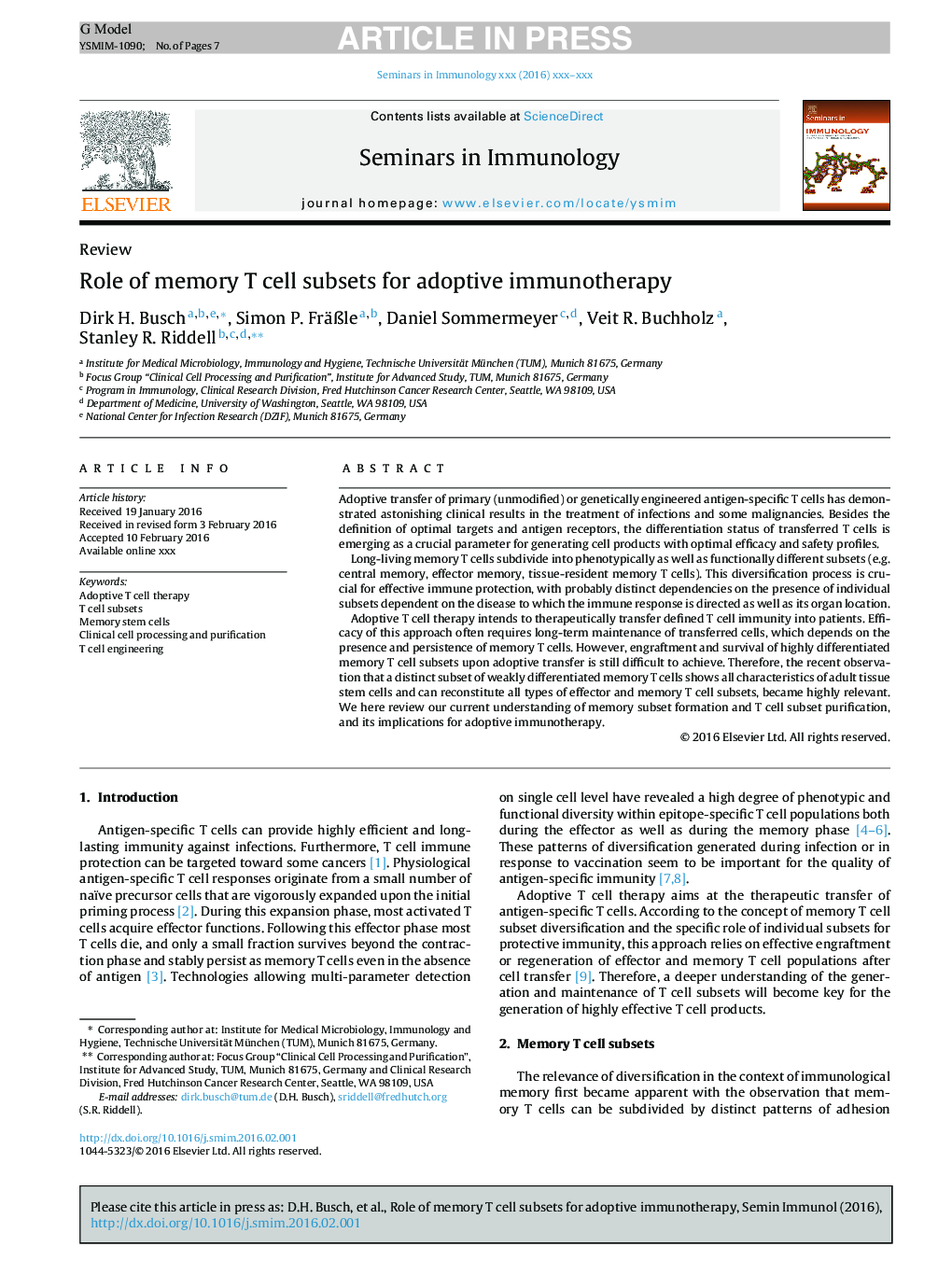| Article ID | Journal | Published Year | Pages | File Type |
|---|---|---|---|---|
| 6125812 | Seminars in Immunology | 2016 | 7 Pages |
Abstract
Adoptive T cell therapy intends to therapeutically transfer defined T cell immunity into patients. Efficacy of this approach often requires long-term maintenance of transferred cells, which depends on the presence and persistence of memory T cells. However, engraftment and survival of highly differentiated memory T cell subsets upon adoptive transfer is still difficult to achieve. Therefore, the recent observation that a distinct subset of weakly differentiated memory T cells shows all characteristics of adult tissue stem cells and can reconstitute all types of effector and memory T cell subsets, became highly relevant. We here review our current understanding of memory subset formation and T cell subset purification, and its implications for adoptive immunotherapy.
Related Topics
Life Sciences
Immunology and Microbiology
Immunology
Authors
Dirk H. Busch, Simon P. FräÃle, Daniel Sommermeyer, Veit R. Buchholz, Stanley R. Riddell,
